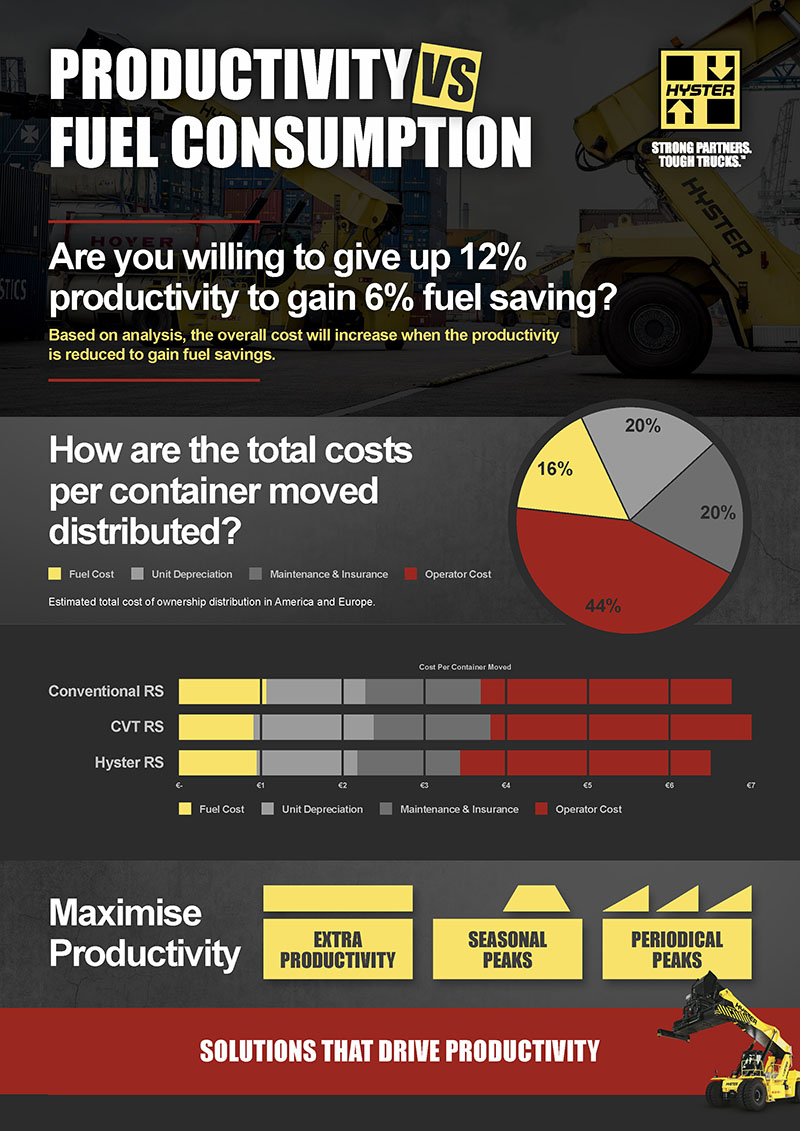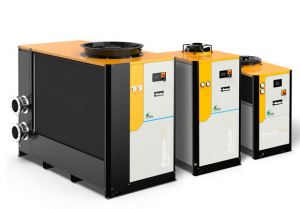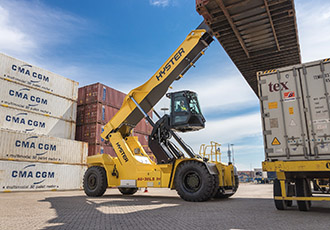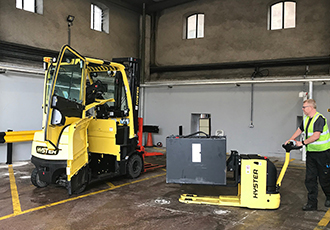Finding the balance between productivity and fuel consumption

Hyster Europe used data from telematics to create an analysis which offers insight into ways to reduce the cost per tonne moved. The overall conclusion is that productivity has a greater impact on Total Cost of Operation (TCO) compared to minimising fuel consumption. Whilst Hyster Container Handlers offer one of the lowest fuel consumption rates, this has been achieved without compromising productivity.
“Better productivity has a greater impact on the cost per container moved,” stated Chris van de Werdt, Product Strategy Manager EMEA Big Trucks for Hyster Europe. “Fuel savings are good to have when they are not affecting productivity, as they are also a small percentage of the cost of running a machine.”
The company estimates that typically for the European and US market (excluding the tyre costs) just 17% of the total cost to run a ReachStacker, for example, is the fuel cost. 18% is maintenance costs, 20% is depreciation and a full 45% is operational costs, including the driver.
Van de Werdt added: “Our approach to fuel savings has always been about the best balance to support busy operations,” says Chris. “Tests we have conducted indicated that the Hyster ReachStacker can be up to 12% more productive than a comparable product.
“Real-life testing shows that 12% more containers can be moved per truck per hour in many operations, which quickly adds up. Excellent power response and productivity is often much better for operations with seasonal peaks and tight timescales when they need to push harder.
“Hyster Europe offers fast, responsive machines that can help keep drivers fresh and productive. Slow machines can lead to complaints, poor staff retention and an inefficient operation, despite marginal savings at the fuel pump.”
Hyster has always been at the forefront of fuel saving technologies particularly during the launch of its Stage IV Big Truck range.
Van de Werdt said: “We were the first to bring huge fuel savings to the market, but we did not compromise on productivity. As we launch our Stage V range, the fuel savings are significant, but the productivity is exceptional, making this the best balance for operations who want to make real financial savings.”

Similar articles
More from Hyster
- Is the future of forklifts all electric? 18th December 2019
- Second rail container handling options launched 13th November 2019
- Specially engineered lift trucks refresh operations 31st October 2019
- Save moving costs with with Spacesaver lift trucks 9th October 2019




.jpg)







Write a comment
No comments